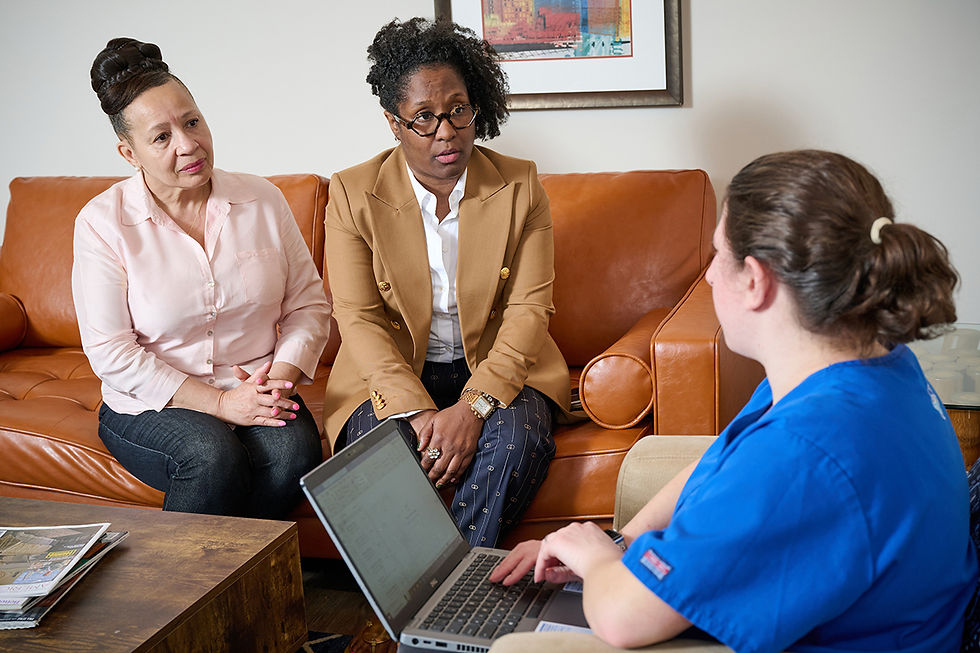Tips for Caring for the Caregiver
- Hospice of the Western Reserve

- Sep 8, 2024
- 2 min read

Although you may not consider yourself a caregiver, you are. A caregiver is anyone who cares for an ill person. A caregiver is most often a family member or close friend.
Caring for someone can be both rewarding and stressful. It is not unusual to experience a variety of feelings at this time. These feelings are neither good nor bad. They are your feelings. They may affect your life and wellbeing during the time you are providing care.
Over the years, we have learned from caregivers that caring for someone with a serious illness is a life-changing process. They have taught us that even in the midst of hurt and sadness, there are chances to learn, grow and heal.
Being a caregiver can be a valuable time to create lasting and positive memories together. You may feel a sense of inner peace or a stronger sense of self-worth. You and your loved one may find moments of joy and laughter in your time together; your relationship may become more emotionally intimate. You may find time to close some unfinished business with your loved one, saying things that you need to say.
Caregiving responsibilities can feel overwhelming. Please be aware of:
Excessive fatigue
Fear of the unknown
A loss of control
A loss of “normal” activities
Financial worries
Social isolation
Emotional challenges
Feelings of obligation, guilt or resentment
Difficulty making plans
To effectively care for another person, you need to care for yourself. Here are some valuable suggestions:
Establish visiting hours so that you can have both support and privacy
Select a family member or friend to oversee relating updates by phone or email to others who are concerned
Educate yourself about the condition of the person receiving care. Talk to your physician and your hospice care team
Realize that no one can be all things to all people. You may not be able to live up to everyone’s expectations; try not to dwell on negative comments
Maintaining good health is a priority. Get enough rest, eat properly and exercise. Identifying your needs as a caregiver is the first step toward taking care of yourself and the person receiving care. Here are some ideas to help you get started. Please talk these over with your hospice care team.
What would you like to have help with?
Household chores
Shopping
Getting through the night
Personal care
What questions do you have about providing care?
How do I administer medication?
If my loved one is not eating, is starvation a possibility?
Can we take outings?
What worries you?
Being alone and missing my loved one
My loved one suffering and being in pain
What are my financial obligations?
We are committed to answering your questions, supporting your needs, and helping you feel more at peace and confident in caring for your loved one. Visit hospicewr.org for more information. We’re also here to help 24 hours a day, seven days a week by calling 800.707.8921.

Read this article and more in CL Magazine Vol 10 - Issue 2



















